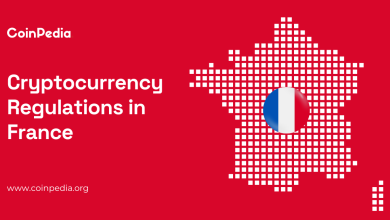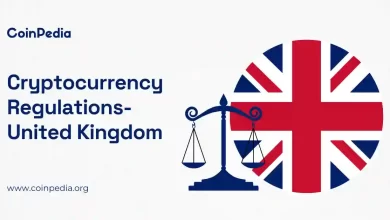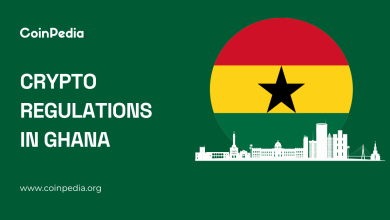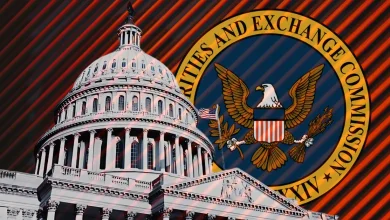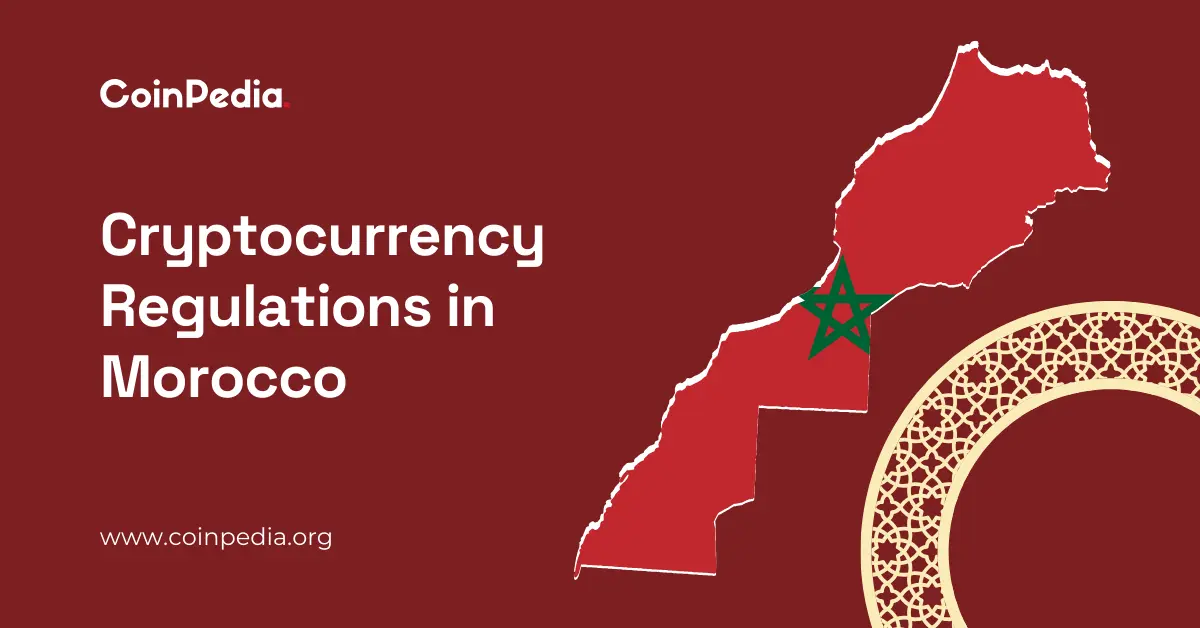
Unlike most countries in the world, Morocco has not legalized cryptocurrency. Up until the previous year, Morocco adopted the ‘wait and see’ approach to regulate the crypto industry. However, in late 2024, the country released a statement that it is preparing to legalize cryptocurrency under the federal government.
Recently, the Central bank released new updates on this regulatory framework, while the government actively works on bringing crypto activities under national fiscal policies.
Table of contents
Crypto Regulations in Morocco
2025- Tax Regime
- The Moroccan Tax Administration (DGI) and Bank Al-Maghrib (BAM) will regulate crypto activity are oversee the taxation, which will likely be implemented by 2025.
- The proposal includes a capital tax of 15-30%, and a progressive income tax 10% to 38%. It also imposes a corporate tax on businesses involved with crypto; however, the proper guidance has not been released yet.
February 2025- Investigation on Crypto users in property purchases
- Moroccan authorities began cracking down on cryptocurrency-enabled property purchases, as users utilize crypto to bypass regulations for foreign real estate transactions.
- This violation of foreign exchange regulation was being investigated by the Moroccan authorities, and individuals were found using a significant amount of Bitcoin, Ethereum, Tether, Litecoin, and Ripple.
November 2024- Crypto Regulatory Framework
- A draft on cryptocurrency is undergoing the process of adoption in Morocco, stated the governor of the central bank, Abdellatif Jouahri.
- He also revealed that Morocco is preparing to regulate central bank digital currency (CBDC) to contribute to achieving certain central public policy objectives, particularly in financial terms.
November 21, 2017- Crypto Ban
- The Moroccan Exchange office and Central Bank passed “bye-bye Bitcoin,” banning cryptocurrencies and imposing punishment for non-compliance.
- The government cited potential risks and threats to political power due to the decentralization of crypto and proceeded to declare crypto illegal.
Current Status of Crypto in Morocco
| Cryptocurrency and Digital Assets | Current Status | 2025-2026 |
| Bitcoin | Illegal | Under the process of regulation |
| NFTs | Illegal | Under the process of regulation |
| Mining | Illegal | Under the process of regulation |
| Trading | Illegal | Under the process of regulation |
| DeFi | Illegal | Under the process of regulation |
| CBDC | Illegal | Under the process of regulation |
Why Did Morocco Ban Crypto?
- Monetary Sovereignty: Morocco feared losing economic and monetary sovereignty, having no control over the capital flight due to the decentralization of crypto.
- Decentralization of Crypto: Since Morocco had not established adequate laws for crypto, it feared that decentralized digital finance would threaten the hold of the central bank and banking industry on the liquidity markets.
- Involvement in Illegitimate Activities: As crypto is considered a hidden payment system that is not backed by any financial institution, Morocco feared that crypto could be involved in illicit activities.
- Financial Risk: Morocco’s foreign exchange authority, the Office de Changes, highlighted the risk of cryptocurrency being used for money laundering, terrorism financing, and other illegal activities due to its pseudonymous ability to bypass traditional financial regulation.
- Protection of Consumers: As there was a missing legal framework, the government was concerned about consumer protection in case of loss of funds or crypto theft.
Moroccan Government’s Stance on Crypto
Morocco has been sending mixed signals, as the government banned crypto, it has been awaiting clearer international legal frameworks before stepping up to regulate the use of the asset within the Moroccan economy.
Earlier, during banning crypto, the Foreign Exchange Office stated, “Penalties and fines will apply to anyone engaging in transactions with foreign countries that do not go through authorized intermediaries or in foreign currencies not listed by Bank Al-Maghrib,” in regards of crypto.
However, now the country is finally taking a step up to regulate cryptocurrency with a legal framework.
Crypto Tax in Morocco
While navigating the legal crypto framework, Morocco is trying to balance financial stability with innovation. Along with the regulatory framework of crypto, Morocco has proposed a tax structure bracketing different activities, which will be implemented by 2025.
| Tax Type | Tax Rate | Detalis |
| Capital tax gains | 15-30% | Treatment of securities |
| Income tax | 10% to 38% | Progressive |
| Corporate tax | 20% to 31% | Including crypto businesses |
- Taxable crypto: Mining, airdrops, and staking are likely to be considered taxable, with guidelines on distinctions. The treatment of decentralized finance (DeFi) and non-fungible tokens (NFTs) remains unclear, as proper guidance is yet to be provided.
- NOTE: Non-compliance could lead to a penalty; record keeping and timely reporting are mandatory for all companies and individuals involved with crypto.
Crypto Adoption in Morocco
- Crypto Adoption: Despite the crypto ban, many individuals are involved with the industry in Morocco. Approximately 6 million Moroccans are estimated to own or use cryptocurrency in 2024, representing 16% of the total population. Some users are involved in informal crypto platforms, while others operate through underground methods.
- Crypto Revenue: With a new legal framework, Morocco’s crypto market is projected to reach $278.7 million by 2025 and $292.4 million by 2026. Once the framework is enacted, the crypto market is anticipated to grow at a rate of 4.92% annually.
Conclusion
As the interest in crypto is growing rapidly among Moroccans, the government seems compelled to regulate crypto to prevent any further illegal activity. With a clear taxation regime and legal regulatory framework, Morocco aspires to position itself as a potential fintech hub. The government is all set to regulate Bitcoin (with other cryptocurrencies), CBDC, and develop blockchain technology to make Morocco a prosperous nation.
Also read: Crypto Regulations In Indonesia 2025
Never Miss a Beat in the Crypto World!
Stay ahead with breaking news, expert analysis, and real-time updates on the latest trends in Bitcoin, altcoins, DeFi, NFTs, and more.
FAQs
No, cryptocurrency is currently still illegal in Morocco, having been banned in 2017. However, the government is actively preparing a new regulatory framework to legalize and oversee crypto activities, with a draft law in the adoption process.
Morocco banned crypto in 2017 primarily due to fears of losing monetary sovereignty, decentralization threatening the central bank’s control, concerns about illicit activities like money laundering and terrorism financing, and a lack of consumer protection in an unregulated market.
Morocco’s proposed 2025 crypto tax regime includes a 15-30% capital gains tax, a progressive income tax of 10-38%, and a 20-31% corporate tax for crypto businesses. Guidelines for mining, airdrops, and staking are also expected.
Trust with CoinPedia:
CoinPedia has been delivering accurate and timely cryptocurrency and blockchain updates since 2017. All content is created by our expert panel of analysts and journalists, following strict Editorial Guidelines based on E-E-A-T (Experience, Expertise, Authoritativeness, Trustworthiness). Every article is fact-checked against reputable sources to ensure accuracy, transparency, and reliability. Our review policy guarantees unbiased evaluations when recommending exchanges, platforms, or tools. We strive to provide timely updates about everything crypto & blockchain, right from startups to industry majors.
Investment Disclaimer:
All opinions and insights shared represent the author's own views on current market conditions. Please do your own research before making investment decisions. Neither the writer nor the publication assumes responsibility for your financial choices.
Sponsored and Advertisements:
Sponsored content and affiliate links may appear on our site. Advertisements are marked clearly, and our editorial content remains entirely independent from our ad partners.

